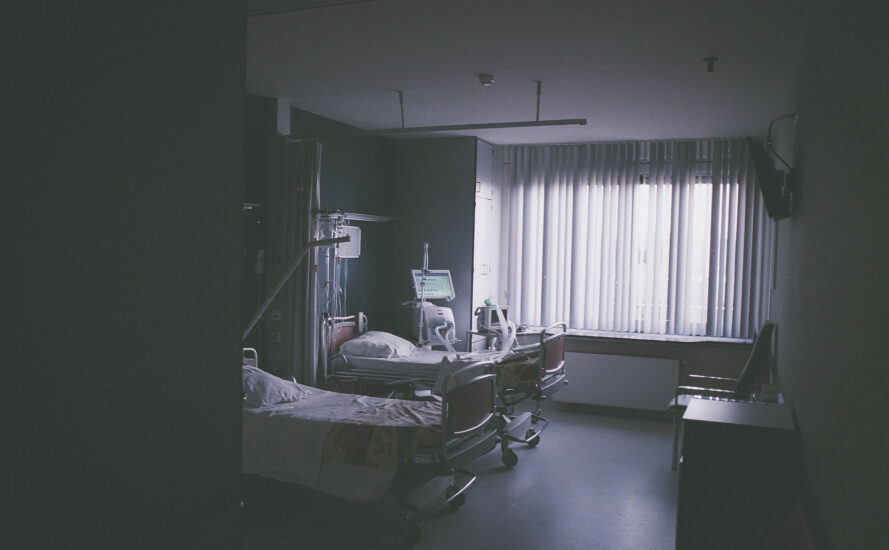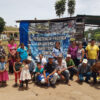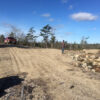
When I sat down to write this, I was going to tell a story all about me, about fear and loss of control, about mortality and illness. A story of an otherwise healthy woman who had a heart attack at 59. About pressure standing in for pain and exhaustion being a symptom. About not having a family doctor and putting off going to the nearest emergency department. A tale about the shock of one’s own mortality….It’s the surgeons and me now that I’m in Halifax and there is no room it seems for choice, none is offered. No treatment broached. No medicine suggested, it’s bypass
or what?
and the talk is fast, the answer certain. The papers are signed, the waivers underlined.
In a few days, it is all over, everything they are going to do for you has now been done. A nurse you’ve never seen before has given you a list of instructions that you can no more understand than you could understand Mandarin but if you are not alone, if there are another set of ears, you can allow them to absorb the do’s and don’ts and you can concentrate on the challenge before you, standing upright.
The op is five days old and time is money and the beds aren’t free so it is time to pack up and get on with yourself. And discharged means discharged, no ifs and or buts, the QEII is done. Hands washed, when it’s over, it’s over, the short response,
none around
to a request for a wheelchair, clears up any doubt. Time to buck-up. Find your mettle. Grin and bear it. So with a list as long as a sleigh track of prescriptions, a loose leaf sheet of instructions, three bandages, and a heart shaped pillow, compliments of the H&S Foundation, we loaded up and left for Truro Town.
Lacking a GP, an NP, this was my medical team: my husband, a construction superintendent, charged with changing the bandage would take a picture every morning of the wound and send it to our daughter who would show it to an RN who did her best to assess the progress from a pic. After a few undignified ordeals involving loose bowels, a pharmacist offered advice. When it came to the stitches, staples actually were removed in a walk-in clinic that is only walk–in insofar as one walks in, for in reality it is a by appointment only clinic.
I was thinking I would write about how we women don’t take our bodies and the subtle and not so subtle signals seriously. I was going to try to chronologically follow the emotional upheaval of a heart attack and its prognosis. I was going to tell about the depression, the boredom, the fear that turns to anger and how suddenly you’re bearing your body’s own weight in fury and how begins the heft of a heart attack on everyone you love.
Yes, I was set to be what I most deplore, self-indulgent, swaying dangerously close to something akin to self-help when the out-going premier of our province saved me.
Listening dumbfounded to him allocate, from the public purse, $5-million in women’s venture capital I was staggered at the heartlessness, at the cheek, while just over here, yes, here, right here in front of us a woman sits on the side of her bed, a hospital phone in her hand calling a taxi to take her to a low-budget motel for the night. Her breast removed yesterday, she has no way home and must spend the night alone in Truro. She has a satchel with a few bandages to take with her, courtesy of the Health Authority; she’ll have to source out some Tylenol herself. But she won’t. There is no pharmacy in the hospital. She will forgo the painkillers for lack of the wherewithal to get them.
Look over there, just there, a single mother of three returning on the bus after she’s been in hospital four nights with colitis, could there not be a car for her; a drive home? A PCW for a day, two? A little help while she gathers her strength?
And the woman buckled with osteoporosis who is being treated for malnourishment will go back to her tenement house to meal on pop tarts and sleep in her clothes. Everyone is assessed. No days. No time. No options.
What of them, Mr Out-Going Premier? Discharged again into poverty or impossible circumstances. We all know that $5-million from the public’s pocket won’t cover the weary worn scars of a long neglected people, but it would go a ways in helping those in immediate distress. It could see a woman home to Springhill from Truro, could it not? A fund, an intermediate programme for a few days of post-op or post-hospital care for those who live alone. An hour or two every other day for the woman who can barely carry her body to relieve herself is enough? Can that even be called homecare?
I was 59 when it happened to me that I was in need of care, that I could not have managed home without it. And it is not only the physical pain, the first couple of weeks of gruelling discomfort that needs attending. It is fearsome to be ill, it is scary to be in need, it is alarming to feel poorly, and unnerving to be closer to death than you thought possible, and there are headaches and nightmares and there is confusion and tears and desperation and sleep is so hard.
Paul Simon was young when he wrote, I am an island, we are not islands; not rocks. People need people. Validation is necessary. We need to talk, to cry, to complain and maybe, just maybe laugh a little or a lot, this is how we heal, with people, with one another, with the invisible ingredients of care and compassion. With all those things that cannot be commodified. Healing must be near impossible alone. A feat of unsung strength.
Five million dollars with the notion to save women through capitalism. Or wait, is it to save capitalism through women? Either way in the face of a failing health system, a system run like a cold and calculated business, it sounds like bullshit to me.
See also: The visitor, a poem by Lenora Steele
Check out our new community calendar!
With a special thanks to our generous donors who make publication of the Nova Scotia Advocate possible.
Subscribe to the Nova Scotia Advocate weekly digest and never miss an article again. It’s free!




Thank you. This is beautiful and a deep truth that we all need to take in so we can go hold our government accountable.
Fantastic and true. We need a more humanist way of treating people. Stop making healthcare cold and mechanical.
Exceptional piece. Thankyou to both Ms Steele and the Nova Scotia Advocate.
I left Nova Scotia 10 years ago because I couldn’t get the medical care I needed then and it’s gotten worse since that time. It was never the concern of government what the people’s needs were or they would meet the needs and stop driving our doctors and nurses out of province to find adequate employment. Excuses don’t treat people. They get big perks off the public purse and give themselves big raises and healthcare suffers.
This needed to be said! Thank you Lenora for writing it and thank the Nova Scotia Avocate for publishing it
Thank you Lenora Steele for writing this article from a patients perspective. As a retired nurse , I have railed against the commodification of Canadian healthcare for decades. What you have so articulately described is the end result of what happens when healthcare is relegated to that “ bloodless paragon of virtue” – the market. Thank you to the NS Advocate for publishing this critical observation. A worrisome and inimical trend in Canadian healthcare.